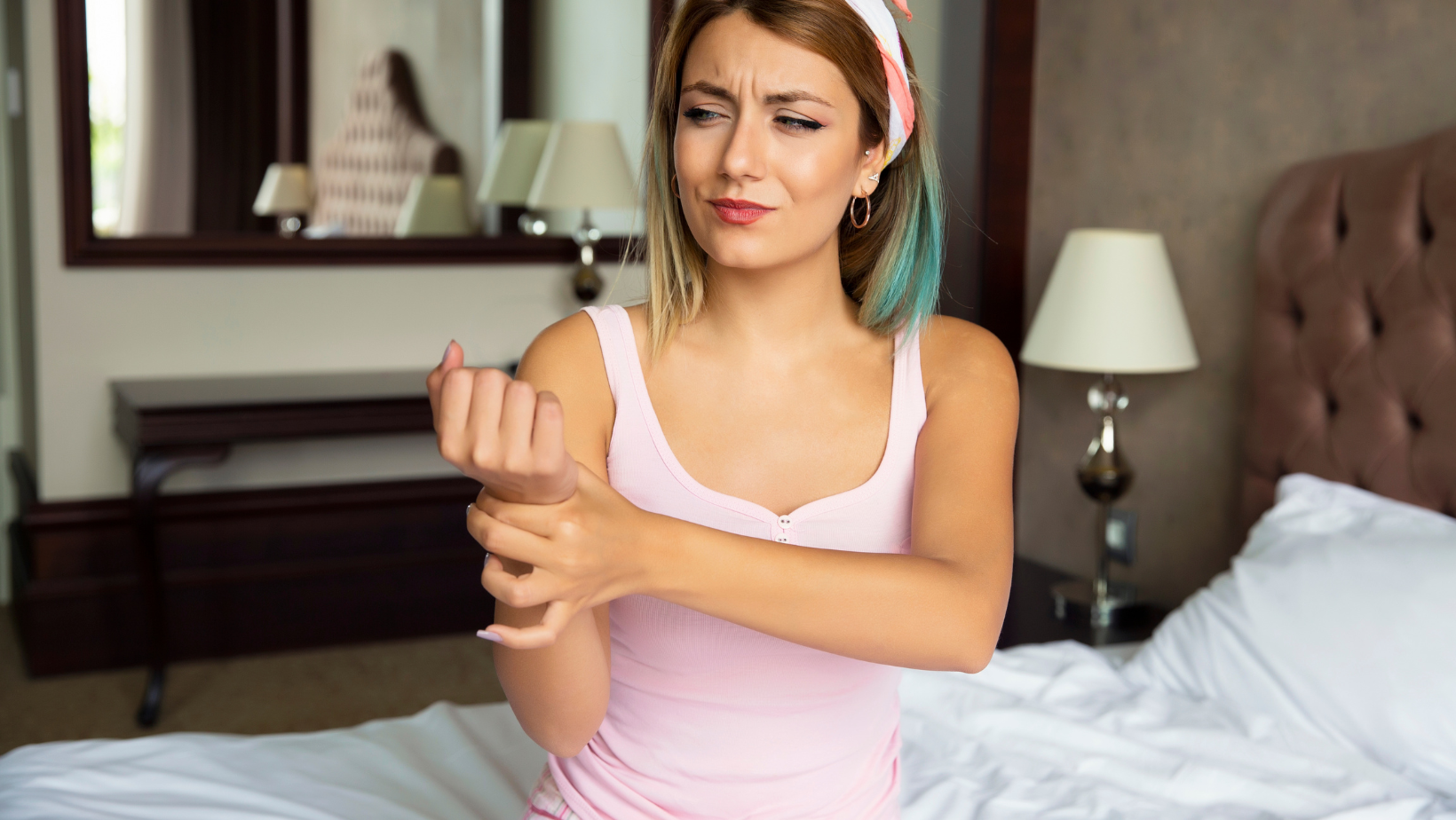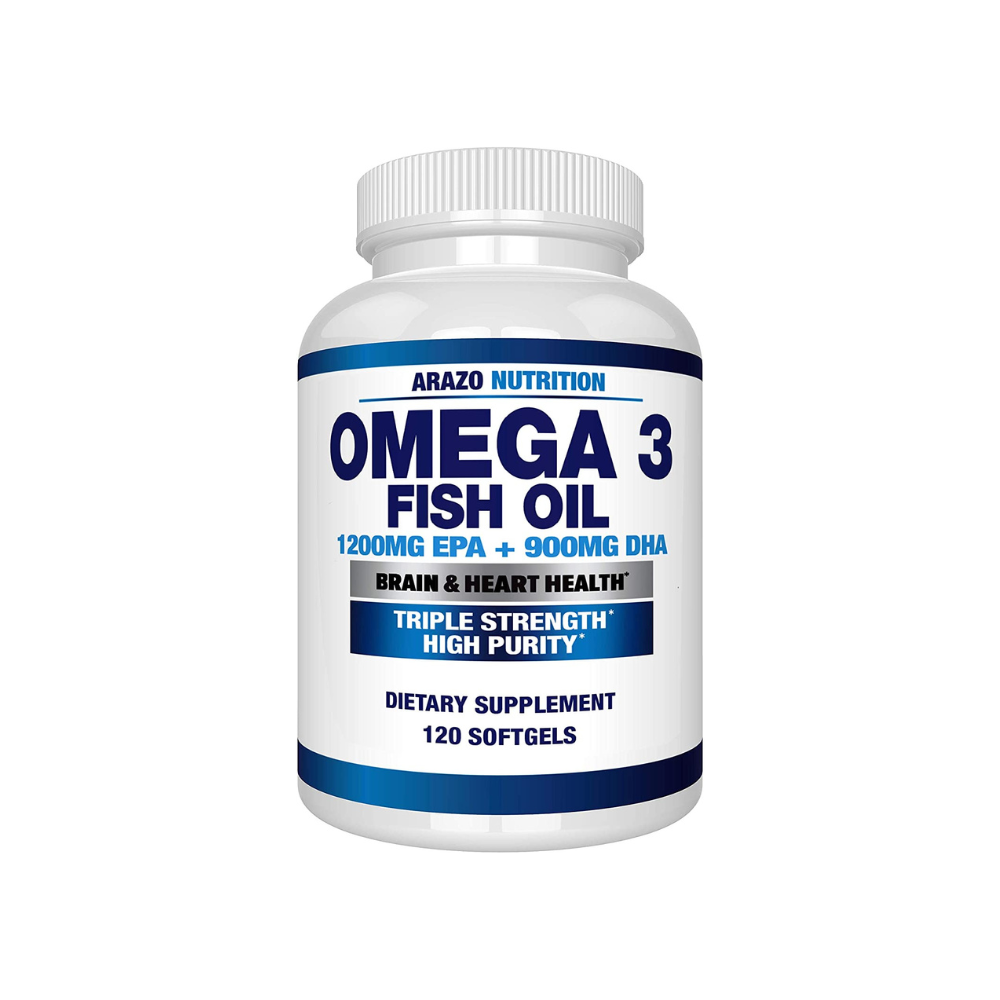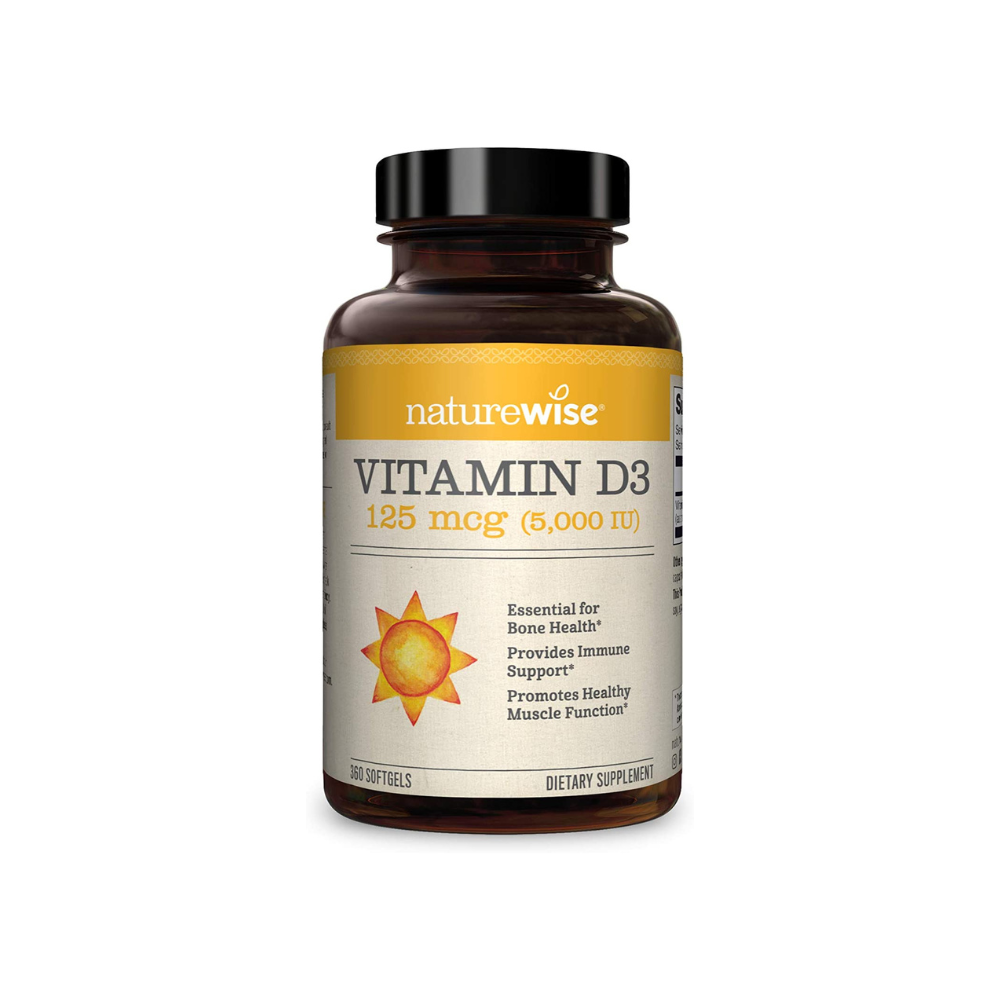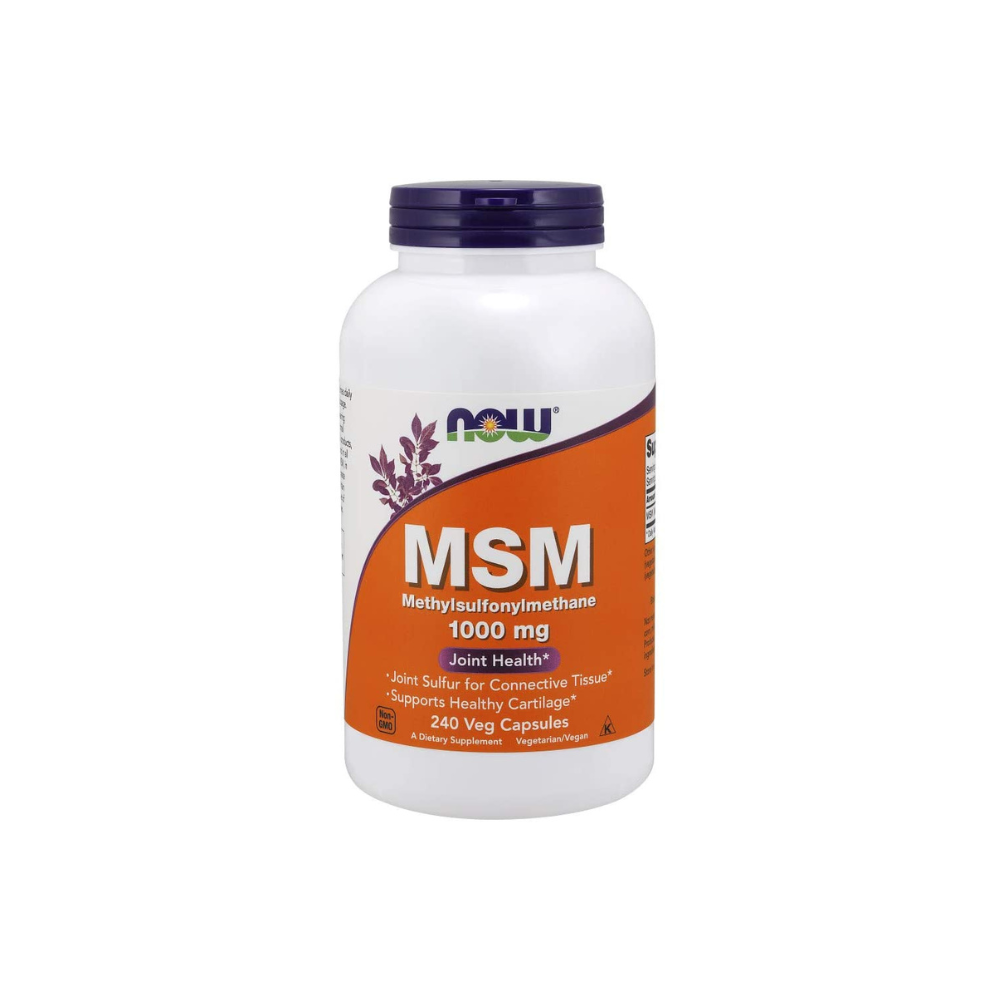Best Supplements for Menopause Joint Pain and How to Deal with Unexpected Symptoms
The hot flashes, mood swings, and joint pain associated with menopause can be a daunting prospect. But you don't have to suffer any longer! Here’s our top pick for relief.

Menopause is a natural process that occurs when a woman's ovaries stop functioning. This change in hormones can cause a variety of symptoms, including joint pain. Joint pain is one of the more common and uncomfortable symptoms of menopause which affects about 50% of all women who go through menopause.
There are many different types of menopausal symptoms. Some women may experience hot flashes, night sweats, mood swings, difficulty sleeping, or trouble concentrating.
The joints in your body are affected by hormones during menopause which can lead to an increase in joint pain and stiffness. This is because there is a decrease in estrogen levels that leads to an increase in inflammation and swelling within the joints which causes pain when moving around.
Fortunately, there are many high-quality supplements that you can take to help relieve painful joints.
5 Best Supplements for Menopausal Joint Pain Relief
Menopause is a natural part of life, but it can be hard on the body. It has been found that women who experience joint pain during menopause may find relief by taking menopause supplements.
Omega-3 fatty acids are good for your heart and brain and have been shown to help with other conditions such as rheumatoid arthritis. They also have anti-inflammatory properties that have been shown to reduce the menopausal joint pain. Women in menopause need to take fish oil daily, as the benefits are long-lasting.
Omega 3 fatty acids are great for managing inflammation and joint pain which are two common causes in menopausal joint pain. As a bonus, omega 3s fish oil also promote heart health and brain function.
Curcumin is the active ingredient in turmeric that is nature's most potent anti-inflammatory supplements or alternative therapies for arthritis. It can also help with menopause symptoms like depression and anxiety as well as boost your metabolism.
Turmeric has been most researched for its effects on health. It provide powerful anti-inflammatories and antioxidant properties, as well as being neuroprotective and a potential cancer fighter.
Curcumin is a nutrient-dense powerhouse. When taken with black pepper in supplemental form, Curcumin promotes a healthy anti-inflammatory response, supports cardiovascular health, and may even protect against cognitive decline.
Vitamin D3 is the number one supplement recommended for joint health and overall bone health. Vitamin D3 is important for many bodily functions, such as regulating the immune system, reducing inflammation, boosting hormone levels, muscle strength, and bone density.
If you have joint pain, you may have low vitamin D levels, as it has been linked to rheumatoid arthritis (RA). Studies show that Vitamin D3, in supplement form, 1,000 to 2,000 units on a daily basis can reduce pain in certain patients with joint pain. And contrary to what you may think, there is no risk of too much vitamin D with supplementation.
Glucosamine is a type of amino sugar that helps to produce cartilage and synovial fluid, which helps with blood flow and acts as a lubricant for the joints. These 2 powerhouse ingredients can help relieve occasional joint discomfort and reduce the symptoms of osteoarthritis. These are a good choice for women who might be worried about taking medications that can have common side effects.
The safety of this supplement has been well documented in clinical studies and research papers, with over 100 published papers in major journals to date. This is the only one you will ever need for your painful joints.
This supplement is an essential mineral that helps to reduce inflammation in the joints caused by arthritis, sports injuries, and provides nutrients for healthy tissue repair.
MSM, in its role in the body's sulfur cycle, helps to create the chemical links needed to form and maintain numerous different types of structural tissues of the human body, including connective tissues, such as articular cartilage and skin.
MSM is also a enhancer of many enzymatic reactions that occur throughout the body. Studies have documented the ability of MSM to improve a wide range of conditions related to health and well-being.
The Importance of a Healthy Diet for Joint Pain
Women in the menopausal stage are often faced with several symptoms. The symptoms of menopause can vary and are different for each individual. Some women experience hot flashes, night sweats, muscle aches, mood swings, and weight gain while others do not. These symptoms can be alleviated by an anti-inflammatory diet.
A balanced diet should include a variety of anti-inflammatory foods like vegetables, beans, and whole grains. You should also eat plenty of oily fish and seafood plus organ meats like beef liver or pork kidneys, which provide important nutrients. Nuts and potatoes are other good sources of protein.
Dairy products such as low-fat milk and yogurt, leafy greens like kale, broccoli, and spinach plus canned sardines and oily fish like salmon with bones should have calcium-fortified cereal, soy products (including tofu), orange juice, and nut milk.
What are the Symptoms of Menopausal Joint Pain?
Menopausal joint pain is a common health issue that affects more than 50% of women in the U.S. It is important to get a diagnosis from your doctor to find out what the cause might be. Joint pain is most commonly due to arthritis or osteoarthritis. Joint pain can also be caused by other health conditions.
Common Menopause Symptoms with joint pain are:
- Joint stiffness
- Joint swelling
- Tenderness to touch
- Pain or aches in the joints
How Women Experience Menopause Joint Pain
In female menopause, the hormones estrogen and progesterone are out of balance. This hormonal change can cause joint pain and stiffness, inflammation, pain, hot flashes, insomnia, weight gain, and mood changes. The symptoms may be temporary or they may last for years.
The average woman starts to experience menopausal symptoms around the age of 51, and it's not uncommon for women to suffer from arthritis symptoms or osteoarthritis. This is an age-related disease that causes joints to lose cartilage and become stiff and painful.
Millions of women are affected by joint pain during and after menopause. Joint pain can be caused by several factors including inflammation, injury, age, or as an adverse effect of medications.
Best Supplements for Menopause FAQs
What causes menopause joint pain?
Menopause can bring discomfort and pain in several ways. As part of the menopause process, some women may have several symptoms that can make regular life more difficult.
These can include hot flushes and vaginal dryness, disturbed sleep, and anxiety. Recent studies suggest that when estrogen levels decline, not only does bone development decrease but so does muscle strength and tendon health. This leads to longer injury recovery times.
Is back pain a symptom of menopause?
Back pain can become an issue when transitioning through menopause. One study of 5,325 women found that postmenopausal women were twice as likely to have chronic pain in the lower back than pre-menopausal women.
Does menopause cause knee pain?
Menopause joint pain is also common in the knees and isn't that surprising given that it's one of the largest joints, connecting your thighbone (femur), the kneecap (patella), and shinbone (tibia), and calf bone (fibula). Your knees are weight-bearing joints as they support the majority of your weight and are subject to a large amount of pressure and wear throughout your life.
Can menopause cause joint pain?
Joint pain isn't uncommon as you age, and it often becomes more common during menopause. It's a pretty common symptom in addition to hot flushes. Menopause is typically between 45 and 55, which many women associate with age-related pain.
Joints that experience high movements such as the hips and knees are most affected. Tissues in other parts of the body can also be affected, including ones in the elbows, neck, shoulders, hands, and fingers.
What does menopause joint pain feel like?
The joints involved in arthritis vary, but they tend to attack smaller joints like fingers and toes as well as bigger ones such as the hip and knee.
Symptoms may include feeling achy, stiff, and burning sensations around the joints, which might worsen in the morning but then improve over time. A lot of women describe feeling pain all over, rather than in specific areas.
In some cases, women have reported that old injuries more recently have come back. For example, a broken wrist might ache again.
When should you consult your doctor?
If you're experiencing joint pain, your doctor needs to diagnose the root of the problem so that they can help you treat it. Menopause is a possible cause of joint pain, but your doctor will run tests to check for other conditions like arthritis and osteoporosis.
If you experience severe pain and are trying all routes available with no success, It is best to talk to your doctor if it is affecting your daily life. They can help with appropriate treatment options and make sure you recover as soon as possible.
Does menopause joint pain go away?
Most women experience relief from joint pain and other symptoms, such as night sweats, during menopause. This is because hormone levels become more balanced and stable during this period.
Many factors influence your overall health, so it's best to have a check-up and see what areas you need to work on. Maintaining good health is important at this time for any number of reasons.
Is menopause joint pain the same as arthritis?
Arthritis, which comes in two main types, is common in older people. However, the onset of one type, rheumatoid arthritis (RA), may coincide with menopause.
Osteoarthritis is a gradual joint disease that often occurs in people around age 40, usually over women going through menopause. In osteoarthritis, the cartilage breaks down, causing achy joints, swelling, and problems moving the joint, which can worsen over time.
Osteoarthritis is typically caused by aging and over time your joints start to deteriorate. This is different from rheumatoid arthritis.
Health Tips on Managing Menopausal Joint Pain
The best way to manage menopausal joint pain is to find out the root cause of the pain. There are many supplements available in the market that claim to be effective in relieving joint pain. We hope our recommendation will help narrow it down.
Here are ways to manage menopausal joint pain naturally:
- Exercise like walking, doing yoga, or swimming
- Get enough rest
- Reduce excess weight
- Take supplements such as glucosamine, chondroitin, omega 3 fatty acids, or turmeric to help relieve painful joints.
- Try alternative treatments like herbal supplements- black cohosh and ginger may help relieve joint pain during menopause, though they should be taken with caution because herbal supplements may interfere with other medications you are taking or have other adverse effects.






